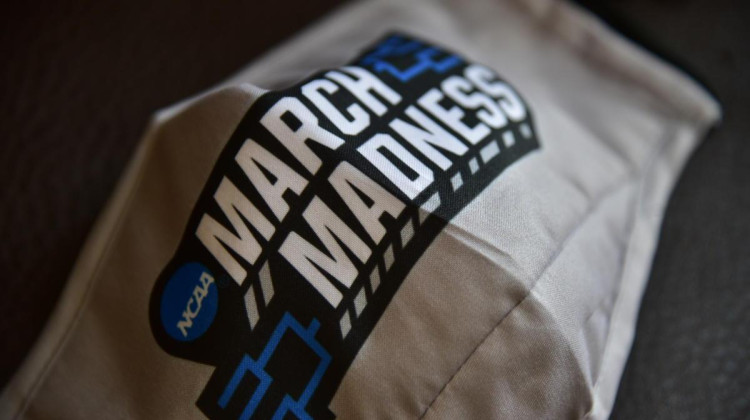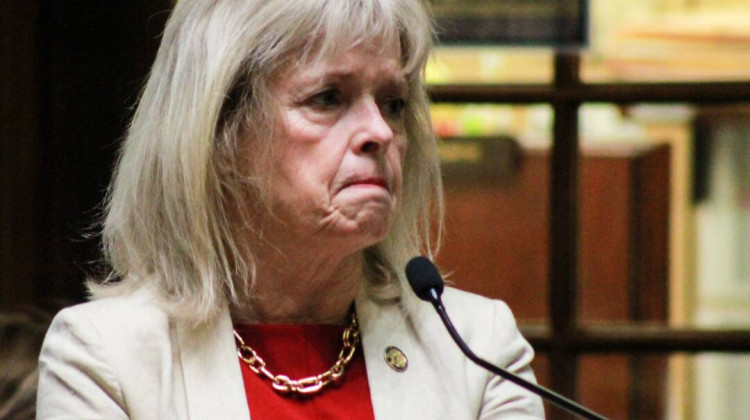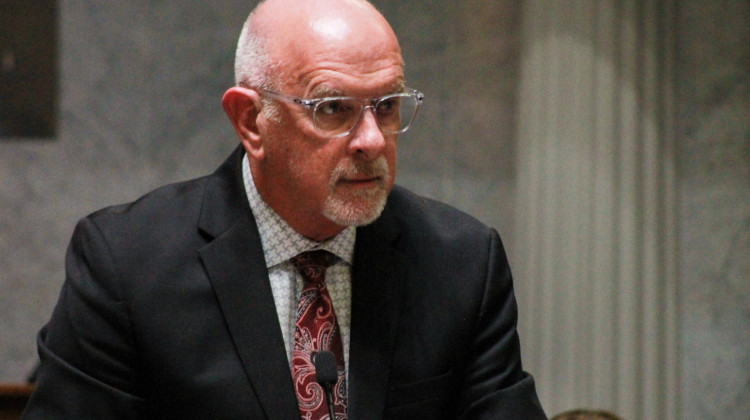
The Indianapolis-based NCAA left the participation of transgender athletes up to the individual sport governing bodies under its 2022 guidance.
File photo: Justin Hicks / IPB NewsHundreds of current and former athletes sent an open letter to the NCAA’s board of governors, calling on the board to protect transgender athletes’ ability to participate in NCAA sports.
It follows a move from a smaller collegiate athletic association to ban nearly all transgender athletes from competing.
The open letter said failure to protect transgender athletes “goes against the very principles of the NCAA’s Constitution.” It was signed by more than 400 current and former NCAA, professional, Olympic and Paralympic athletes.
The letter said transgender sports bans come after nearly half of U.S. states — including Indiana — have banned transgender girls from participating in girls school sports. The letter said these laws are “largely fueled by propaganda and deception” and “fail to address any of the real, documented threats to women in sports.”
In 2022, the Indianapolis-based organization left the participation of transgender athletes up to the individual sport governing bodies.
Megan Rapinoe, a retired U.S. women’s national soccer team and National Women’s Soccer League player and Athlete Ally ambassador, voiced her support for transgender athletes in a statement.
“The time is now for the NCAA and the nationwide athletic community to speak up and affirm that sports should be for everyone, including transgender athletes,” Rapinoe said.
Join the conversation and sign up for the Indiana Two-Way. Text "Indiana" to 765-275-1120. Your comments and questions in response to our weekly text help us find the answers you need on statewide issues.
The National Association of Intercollegiate Athletics, or NAIA, moved to all but ban transgender athletes from competition earlier this month. The association represents more than 200, primarily smaller, colleges.
The NCAA’s 2022 guidance is the subject of a recently filed lawsuit from more than a dozen former and current college athletes. The suit seeks to prevent the NCAA from implementing its guidance at upcoming events in Georgia.
The open letter published Tuesday addresses the concerns from that lawsuit, calling the claims “methodologically flawed and misinterpreted to further discrimination.” It also points to the International Olympic Committee’s guidance, which allows transgender athletes to participate under specific criteria and guidelines.
The mounting pressure coincides with the NCAA’s annual Inclusion Forum, which includes programming on LGBTQ+ issues. The forum is hosted in Indianapolis from April 24-26.
Lauren is our digital editor. Contact her at lchapman@wfyi.org or follow her on Twitter at @laurenechapman_.
 DONATE
DONATE






 Support WFYI. We can't do it without you.
Support WFYI. We can't do it without you.